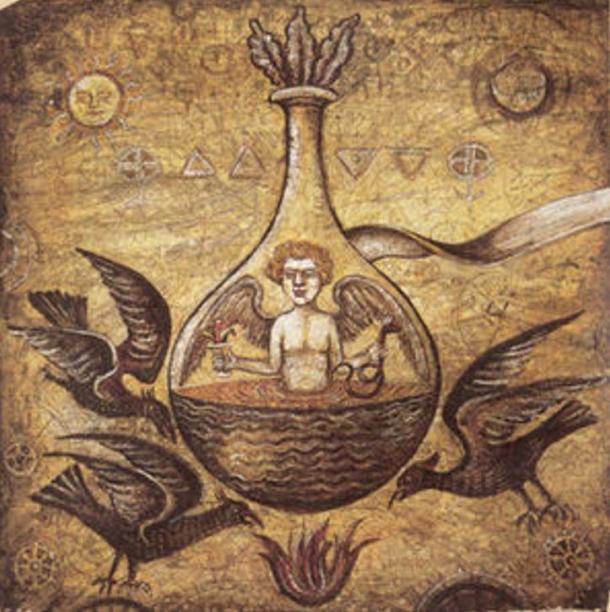
 Avi Ibrahim Balser, a dear Facebook friend, and I have been debating the 1973 Roe vs Wade decision on abortion.
Avi Ibrahim Balser, a dear Facebook friend, and I have been debating the 1973 Roe vs Wade decision on abortion.
I suggest that White’s position was only about whether a zygote … that is a fertilized human egg …can be considered a human life.
The issue here is really religious. As an orthodox Jew, you may believe that personhood, identity, exists in some way not visible to science.
As scientists, we can not comment on things that exist outside the physical, observable, experimental world. However, since 1973 we now know a vast amount more about the egg, the zygote, the fetus and DNA. We also know vastly more about the human brain. So, just as we can argue if a decerebrate person .. eg with Alzheimers or after a stroke .. still exists as a person, we can argue that a fertilized egg is not and can not be a person until he or she has developed the parts of the brain needed for personhood. In both cases the issue is not scientific, it is religious. Do you believe in a form of identity, a personhood that is not defined by your DNA?
Female Homunculous

Male Homunculous
In 1973 .. and prior to that for centuries .. there were accepted ideas that human life was entirely contained in sperm and the mother only provided a womb. Some religions had and still have onerous rules against male masturbation as the wasting of life.
As an orthodox Jew, Avi knows better than I that the Talmud forbids male masturbation and likens the act to murder. These ideas, perhaps including the word of God, came to humans long before we had modern science. With all respect to believers, science and religion are very different things. The founders who wrote the Constitution were clear that religion could not be the basis for public policy. Avi may believe in a soul but his belief would not have standing before SCOTUS.
So, my question is how modern science might have shaped Justice White’s opinion.
Homunculous complete with cross and Christian identity. In the 1500s the Church declared that Jewish personhood was inherited as a “drop of blood” even if the Jew chose to convert.
The idea that personhood begins with fertilization was not new in 1973. Before microscopes .. the idea was that something came from each parent and somehow produced a homunculous .. a complete tiny person that expanded to become a human. In fact until 1839, well after the Constitution was written, we did not even know that humans .. as well plants, fungi, flies, and fish .. were made of cells.
The breakthrough began at the end of the 1600s, along with the European colonization of America. In the Netherlands van Leeuwenhoek used the microscope to describe what he called animalcules (from Latin animalculum = “tiny animal”). The Dutchman did see sperm but undertanding that we are made up of these little animals was not formalized until 1839 by Schleiden & Schwann.
The story of Theodor Schwann and Matthias Schleiden is charming. These early biologists were enjoying after-dinner coffee. As related in the Wikipedia, Schwann heard Schleiden describe plant cells and was struck by the similarity of these plant cells to cells he had observed in animal tissues. The two scientists went immediately to Schwann’s lab to look at his slides. Schwann published his book on animal and plant cells the next year, devoid of acknowledgments of Schleiden.
It is important to realize that while they saw cell nuclei, neither Schwann nor Schleiden had any idea about DNA. Mendell’s genetics, much less DNA, were still decades away .. well after the American Civil War. In fact, rather than the idea that something in the nucleus held the plan of life, Schwann proposed that construction of organisms from cells was similar to the formation of crystals.
Of course there were scientists among the founders. Franklin was the most famous. Presumably, as bright as Ben Franklin was, neither he nor any other less science oriented founding father would have had any idea that Avi or any modern believer would think that a single cell carried a soul. Bottom line, at best the founders saw a fertilized egg, like any other seed that carries the information to be a sponge, a clam, a tree, or a king. They probably believed that somehow maternal and paternal lineages were transmitted to justify kings and property rights, but even there I would guess they did little to discuss whether such personhood was inherent in the mystery then called a homunculous.
I do not know what President Washington would say about modern end of life medicine, but , if you argue that all abortion is wrong, I doubt you can argue that the founders would argue that we need to maintain life for decerebrate people or, at least harvest their stem cell so we can implant their DNA recreating their personhood.
So, with great respect for Avi, I suspect that Justice White would listen to the scientists and decide that Ms. Roe had the right to an abortion.
Roe v. Wade does two things. First, it finds through a process of deductive reasoning there exists a constitutional right to privacy, and is the leading case on this subject. Second, it infers from the right to privacy a right to an abortion. Thus, the abortion right is a subspecies of the privacy right, and the parameters of the privacy right inform the nature and scope of the abortion right. In reaching this conclusion, the court considered the question of when human life begins from many perspectives, including science, religion, philosophy, etc., and could not come up with a definitive answer. This is a situation where, unlike a math problem or science experiment, there is no objectively “right” or “wrong” answer. It depends on your perspective and really comes down to a value judgment. But courts are required to settle disputes, so the justices fashioned the best answer they could come up with, a rather complicated one, which 45 years later continues to be hotly debated, a reflection of just how difficult the question is. The 7-2 majority decision was a product of negotiation and compromise, and in a real sense is a “camel”, i.e. the proverbial “horse designed by a committee.” You can’t make logical sense of it; looking at it as transportation across a convoluted ideological desert is the best way to understand it.
Precisely. The Catholic Church holds that life begins at conception so abortion is murder. In fact, it considers it worse than murder to the point that anyone who assists in one is automatically excommunicated. As for male masturbation, this is considered a mortal sin that has to be confessed before receiving the Eucharist.
Conservative Catholics have been able to use abortion as a cover for holding positions that should be declared immoral but are “relative.” Should those viewpoints be questioned, they are quick to snap. Archbishop Blaise Cupich has established what he calls a “Consistent Ethic of Life” that covers economic injustices, immigration, gun control and other “hot button” issues. When these issues were written about the in National Catholic Register, the quick reply was “stick to faith and morals” which was nothing but a code word for “don’t tell me I need to change my prejudices.”
The point is that they are inconsistent in their faith and morals and merely want everyone to have litmus test about abortion. Consequently, people who care nothing about protecting people from the whims of human will and the marketplace are viewed as “pro-life” simply because they vow to overturn Roe v. Wade. Not a single one of them considers creating an environment where the difficult choice of abortion wouldn’t have to be made in the first place.
“Precisely. The Catholic Church holds that life begins at conception so abortion is murder. I” And, where in canon do they get the basis for this?
I also assume that”life” in this case must be some sort of soul that is somehow intrinsic to a fertilized egg. That suggests to me that the holding may not be based on revelation but on common understanding of what was conception before we had the science I described. Am I correct?
Depending on their sources for revelation, it seems to me, just using pure Aquinas, that the Church’s conclusion combines with the science to inevitably lead to a requirement to prevent all spontaneous abortions. Worse yet, their conclusion may have bearing on end of life, implying that life be prolonged by harvest of a stem cell and using that to derive a baby?